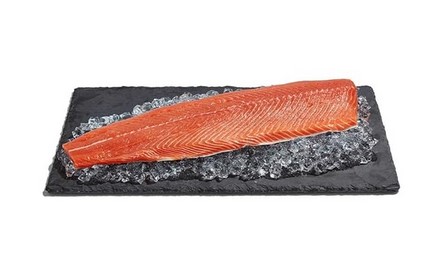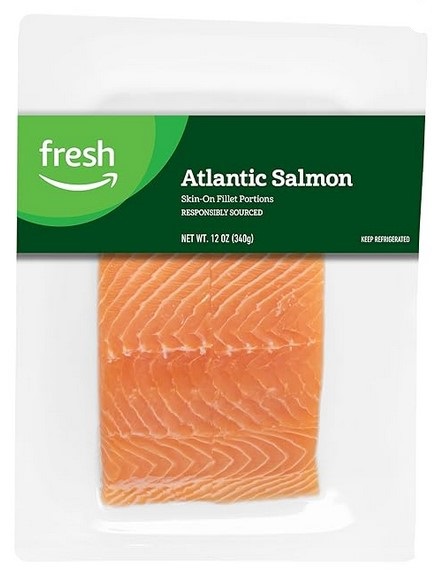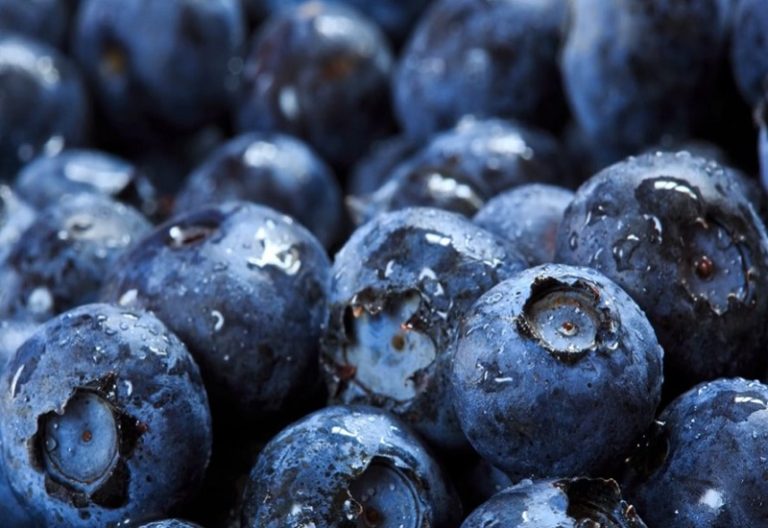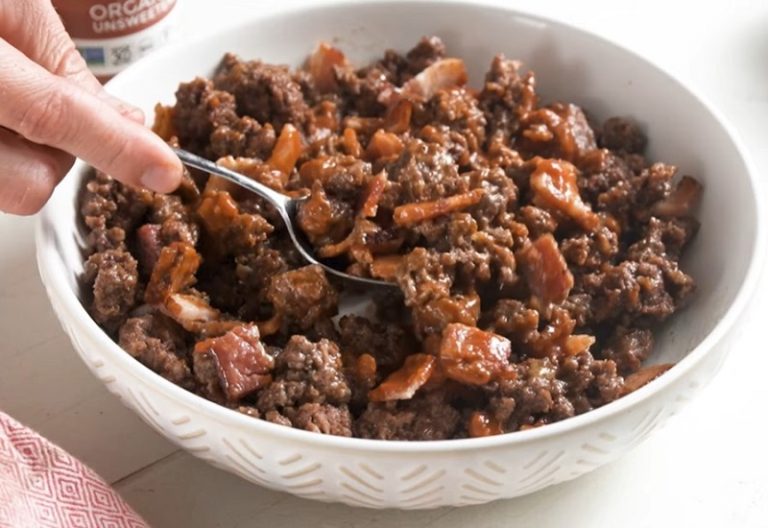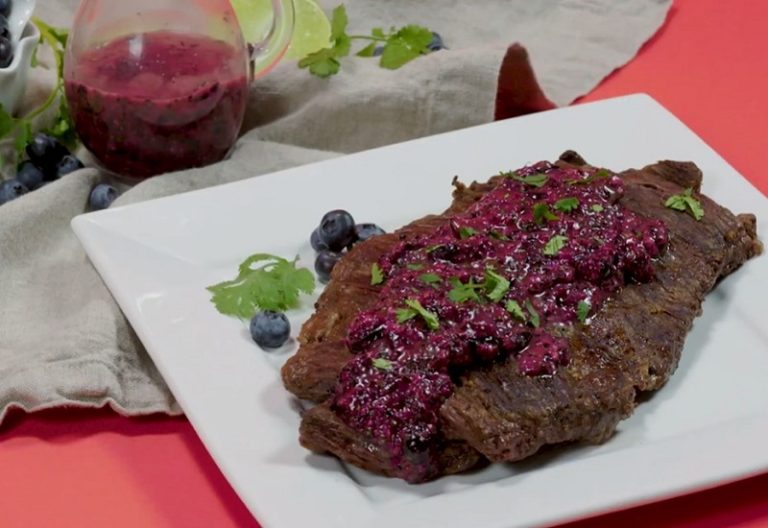Fuel Your Body with Salmon: A Carnivore Diet Powerhouse
Salmon brings a unique twist to the carnivore diet, offering a nutrient-rich alternative to traditional beef and pork-heavy meals.
Packed with omega-3 fatty acids, high-quality protein, and essential vitamins, this powerhouse fish supports brain function, heart health, and muscle growth.
Unlike other meats, salmon provides a perfect balance of fat and protein without excessive heaviness, making it ideal for those aiming for optimal energy and digestion. Wild-caught varieties deliver superior nutrition while keeping meals delicious and satisfying.
Whether grilled, baked, or pan-seared, salmon adds variety without straying from the carnivore philosophy. The rich taste and impressive health benefits make it a top choice for anyone committed to an all-meat lifestyle.
Shifting the focus to seafood within this diet opens new possibilities, proving that steak isn’t the only way to thrive on animal-based nutrition.
Carnivore diet with Salmon Recipe
Salmon is a nutrient-rich fish packed with protein and healthy fats. This simple recipe fits perfectly into a carnivore diet while delivering great flavor and essential nutrients.
The high omega-3 content supports brain function and heart health, making it an excellent choice for a meat-based lifestyle.
- Cooking Time: 15 minutes
- Prep Time: 5 minutes
- Total Time: 20 minutes
- Serving: 2 people
- Calorie: 450 per serving
- Cuisine: Carnivore Diet, Keto
Ingredients
- 2 salmon fillets (wild-caught preferred)
- 2 tbsp beef tallow or butter
- 1/2 tsp sea salt
- 1/2 tsp black pepper (optional)
- 1/2 tsp garlic powder (optional)
Atlantic Salmon Fillet
Instructions
Step 1: Prepare the Salmon
Pat the salmon fillets dry with a paper towel. This helps achieve a crispy texture when cooking.
Sprinkle sea salt, black pepper, and garlic powder evenly on both sides.
Step 2: Heat the Pan
Place a cast-iron skillet over medium heat. Add beef tallow or butter and let it melt completely.
Step 3: Cook the Salmon
Lay the salmon fillets skin-side down in the pan. Let them cook undisturbed for about 5 minutes. This allows the skin to crisp up.
Step 4: Flip and Finish Cooking
Use a spatula to gently flip the fillets. Cook for another 4-5 minutes until the fish turns opaque and flakes easily with a fork.
Step 5: Serve and Enjoy
Remove from heat and let the salmon rest for a minute. Serve hot with extra melted butter on top.
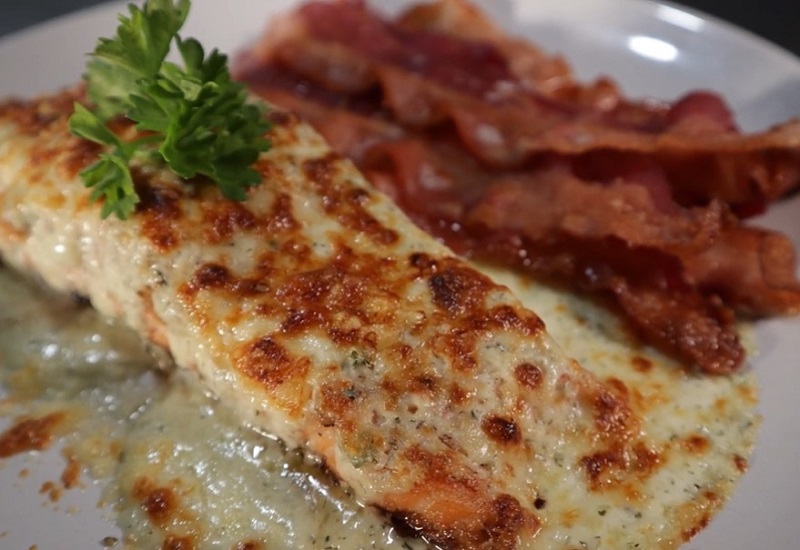
Top Tips
Choose Wild-Caught Salmon
Wild-caught salmon has more omega-3s and a better nutrient profile than farmed varieties.
Use a Hot Pan
A well-heated skillet ensures a crispy skin and even cooking.
Avoid Overcooking
Salmon dries out quickly, so keep an eye on it. A slightly pink center means it’s still moist inside.
Rest the Fish
Letting it rest for a minute helps retain juices and improves texture.
Variations
Grilled Salmon
Instead of a pan, cook the salmon on a grill over medium heat for 4-5 minutes per side.
Air Fryer Salmon
Preheat the air fryer to 400°F (200°C). Cook for 10 minutes, flipping halfway.
Butter-Poached Salmon
Simmer the fillets in melted butter over low heat for a tender, rich flavor.
Atlantic Salmon Skin On Fillet Portions
Nutritional Information (Per Serving)
- Calories: 450
- Protein: 40g
- Fat: 30g
- Carbs: 0g
- Omega-3s: High
- Sodium: 500mg
FAQs
Is Salmon Good for a Carnivore Diet?
Yes, salmon is a great choice. It provides high-quality protein and essential fats with zero carbs.
Can I Eat the Skin?
Absolutely. The skin contains extra nutrients and turns crispy when cooked properly.
What Fat Should I Use?
Beef tallow, butter, or ghee work best. These fats keep the meal carnivore-friendly.
How Do I Store Leftovers?
Keep cooked salmon in an airtight container in the fridge for up to 3 days. Reheat in a pan for best results.
Conclusion
Salmon is a perfect fit for the carnivore diet. It’s simple to prepare, packed with nutrients, and delicious.
Whether pan-seared, grilled, or air-fried, this recipe delivers great taste with minimal effort.
Stick to high-quality fats and enjoy a meal that fuels your body with essential proteins and healthy fats.

